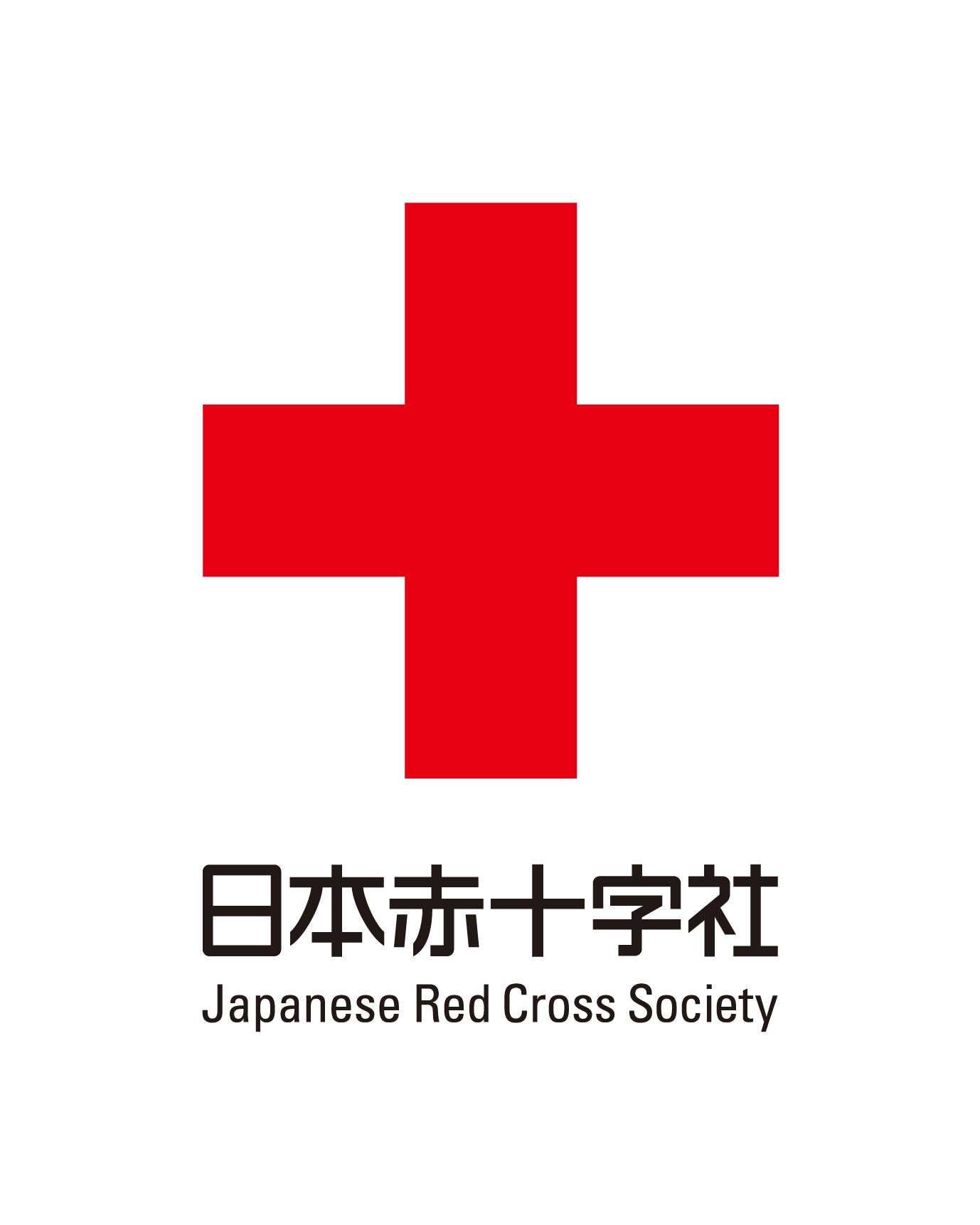赤十字国際委員会総裁と日本赤十字社社長の共同声明
破滅的な結末を避けるために:もう二度と核兵器が使われることがないよう、今こそ行動すべき

本文(日本語) |
2023年5月19日~21日に広島で開催されるG7サミットに向けた
赤十字国際委員会総裁 ミリアナ・スポリアリッチと日本赤十字社社長 清家 篤の共同声明
破滅的な結末を避けるために:
もう二度と核兵器が使われることがないよう、今こそ行動すべき
赤十字国際委員会(ICRC)と日本赤十字社は広島がG7サミットの開催地に選ばれたことを歓迎します。
この選択によって、核兵器使用のもたらす悲惨な結果について、世界の関心を集めることになるでしょう。
G7のリーダーたちが広島に集う今このときこそ、世界の人々は、1945年に2度の原爆投下によってもたらされた恐怖を思い起こすべきです。人類の生存のために、私たちは、破滅的な影響と取返しのつかない被害をもたらす兵器を世界からなくさなければなりません。そのためには、国際社会による緊急かつ断固とした行動が必要とされています。
政治的緊張が高まり、軍備を増強する新たな動きが見られる中、核兵器が使用されるリスクは冷戦下に最も緊張の高まった時以来、この上なく高いレベルに達しています。いわゆる戦術核兵器や低出力核兵器の使用でさえ、壊滅的な被害をもたらし、80年にわたる核兵器のタブーを破ってしまうことになります。1945年に使用された広島原爆の核出力は15キロトンでしたが、今日ではそれは小型核兵器に分類される規模のものでした。それでも、当時14万人もの人命を奪ったのです。
1945年の広島のような規模の核爆発が一回でも起きた場合、効果的な医療支援を行うことはほぼ不可能です。今日、同じことが起これば、状況はさらに厳しいものとなるでしょう。そのような核兵器の使用によって、決して閉じることのできない不幸への戸口が開かれ、広範囲にわたって恐ろしい苦しみが生まれるばかりか、核兵器のさらなる拡散を招く危険性さえあります。核兵器保有国が持つ核兵器は13,000発近くあり、その多くは広島原爆をはるかに上回る破壊力を持ち、数分以内に発射可能です。この暗い影の差す道をさらに進めば、世界中の人びとの健康、環境、気候、食料生産、社会経済発展に破滅的な影響を与えることになるでしょう。このような事態に対処できる政府や国際機関はありません。
ICRCと日本赤十字社は、1945年の広島と長崎の原爆によりもたらされた想像を絶する苦しみと惨状において、医療従事者などが不可能に近い状況の中で瀕死の人びとや負傷者を一人でも多く助けようとする姿を目の当たりにしました。今日、核兵器の長期にわたる有害な影響について、より多くのことが知られています。日本赤十字社の病院は、放射線被曝に関連した癌やその他の病気で苦しみ、お亡くなりになった数多くの被爆者のための治療を続けてきました。私たちは、この暗い過去を繰り返してはなりません。私たちは、被爆者の方々に対し、彼らの受けた恐怖が二度と繰り返されることがないように努める責任があります。
対策がとれないもの、対応ができないものは、未然に防ぐしかありません。
核兵器が二度と使われないようにするには、核兵器を廃絶するしかなく、そのために不可欠なステップの一つは核兵器を禁止することです。核兵器がもたらす脅威を認識する国は世界中に増え、核兵器禁止条約については68カ国が批准し、27カ国が署名を終えています。
国際赤十字・赤新月運動は、国際人道法の原則と規則に従ったかたちで核兵器が使用できるなどということはとても信じられないと考えています。また、いかなる核兵器の使用も、人道の原則や公共の良心が求めるものに反するでしょう。核兵器によるいかなる威嚇も同様です。それは、実際に核兵器を使用することをほのめかすものだからです。
核兵器を二度と使わないようにすることは常に重要なことですが、今まさに存在する核兵器のリスクを抑えることも同じく重要かつ不可欠なことです。核兵器を使用するという威嚇や、ますます激しくなる核兵器を重要視する発言は、すでに危険である状況をさらに悪化させています。このような中で、核兵器の使用や威嚇を容認しないという世界のリーダーたちの最近の声明は歓迎すべきものです。
私たちは、こうした声明が実行に移されることを見届けたいのです。
そのため、ICRCと日本赤十字社は、すべての国が以下の行動をとるよう呼びかけます:
・核兵器禁止条約に署名、批准すること。
・状況に関わらず、核兵器の使用にかかる暗示的あるいは明示的なすべての威嚇を非難すること。
・核兵器の使用を想像または推測させる発言、核兵器がもたらす人道的影響を無視または軽んじる発言、あるいは核兵器の使用に対するタブーを侵すような発言を控えること。
・核兵器が使用されるリスクを抑制するため、核兵器の即応態勢の解除や先制不使用の約束、軍事方針及び安全保障政策における核兵器の重要度を下げることなど、緊急かつ具体的な措置を講じること。
・国際法上の義務に基づき、核兵器廃絶を達成することを含め、核兵器不拡散条約(NPT)およびその再検討会議での公約を完全に履行すること。
・核兵器の使用や実験によって被害を受けた人々を支援し、影響を受けた自然環境を除染するための強固な措置を講じること。

本文(English) |
Joint statement from
the President of the International Committee of the Red Cross, Mirjana Spoljaric,
and the President of the Japanese Red Cross Society, Atsushi Seike,
ahead of the G7 summit in Hiroshima
19-21 May 2023
Avoiding catastrophe:
we must act now to ensure nuclear weapons are never again used
The International Committee of the Red Cross (ICRC) and the Japanese Red Cross Society (JRCS) welcome the selection of Hiroshima as host of the G7 Summit, a choice that draws global attention to the calamitous consequences of the use of nuclear weapons.
As G7 leaders gather in Hiroshima for their meeting, the world must remember the horror wrought by the two atomic bombings of 1945. For the sake of the survival of humanity, we must free the world of weapons that threaten catastrophic humanitarian consequences and irreversible harm. This requires immediate and decisive action by the entire international community.
The risk of use of nuclear weapons is highest since the worst moments of the Cold War, amid heightened political tensions and new steps to expand arsenals. Even the use of a so-called "tactical" or low-yield nuclear weapon would have devastating humanitarian consequences and break an 80-year nuclear taboo. The Hiroshima bomb had a yield of 15 kilotons, what today would be described as a small nuclear weapon. It killed 140,000 people.
Providing effective medical assistance following a single detonation of this size in Hiroshima in 1945 was almost impossible; today it would be even worse. Such a detonation would open a portal of misery that may never close, with widespread and horrendous suffering and a risk of nuclear escalation. With almost 13,000 nuclear weapons in the arsenals of the nuclear-armed states, many with much more destructive power than the Hiroshima bomb and ready to be launched within minutes, that dark path would have catastrophic effects on human health, the environment, the climate, food production, and socio-economic development around the globe. No government or international organization is prepared to deal with such a situation.
The International Committee of the Red Cross and the Japanese Red Cross Society witnessed first-hand the unimaginable suffering and devastation caused by the atomic bombs in Hiroshima and Nagasaki, as medical and humanitarian personnel attempted, in near-impossible conditions, to assist the dying and injured. Today we know even more about the long-term poisonous effects of nuclear weapons. Japanese Red Cross hospitals have continued each year to treat many thousands of survivors who have suffered and died from cancers and other diseases linked to exposure to nuclear radiation. We cannot allow a repetition of this dark part of our past; we owe it to the survivors – the Hibakusha – to ensure that the horrors they suffered are never repeated.
What we cannot prepare for, what we cannot respond to, we must prevent.
The only way to guarantee that nuclear weapons are never used again is by eliminating them, and their prohibition is an essential step for reaching this goal. An increasing number of states around the world recognize the existential threat nuclear weapons pose, leading to 68 states ratifying the Treaty on the Prohibition of Nuclear Weapons and another 27 states signing it.
The entire Red Cross Red Crescent Movement recognizes that it is extremely doubtful that nuclear weapons could ever be used in accordance with the principles and rules of international humanitarian law. Moreover, any use of nuclear weapons would be abhorrent to the principles of humanity and the dictates of public conscience. Any threat to use nuclear weapons is equally abhorrent, as it implies the possibility of actually using them.
Preventing a second use of nuclear weapons has always been vital, but reining in the risk at this moment is imperative. Threats to use nuclear weapons and increasingly strident nuclear rhetoric are exacerbating an already dangerous situation. Recent statements from global leaders on the inadmissibility of use or threat of use of nuclear weapons are welcome.
We want to see these statements translated into action. Therefore, the ICRC and the JRCS call on all states to:
・Sign and ratify the Treaty on the Prohibition of Nuclear Weapons.
・Condemn all threats to use nuclear weapons, implicit or explicit, regardless of circumstances.
・Refrain from rhetoric that envisages or speculates about the use of nuclear weapons, that ignores or minimizes the humanitarian consequences of use, or that otherwise erodes the taboo against their use.
・Take immediate and concrete steps to reduce the risk of nuclear weapons being used, by taking nuclear weapons off high alert, committing to no-first-use policies, and de-prioritizing nuclear weapons in military doctrines and security policies.
・Fully implement the Nuclear Non-Proliferation Treaty and commitments made at its review conferences, including achieving the complete elimination of nuclear weapons pursuant to their obligations under international law.
・Take robust measures to assist those affected by nuclear weapons use or testing and to decontaminate the impacted natural environment.

赤十字国際委員会(ICRC) 総裁 ミリアナ・スポリアリッチ |
 赤十字国際委員会(ICRC) 総裁 ミリアナ・スポリアリッチ
赤十字国際委員会(ICRC) 総裁 ミリアナ・スポリアリッチ
2022年10月1日にICRC総裁に就任。
これまで、国連開発計画(UNDP)で事務局長補佐・副管理者を務め、欧州・独立国家共同体(CIS)地域局長も兼務していた。また、スイス外交団の一員として長年にわたり貢献。国連および国際機関の部門において大使や代表職を歴任し、主要な国連部会や会議でスイスの政策と優先事項を取り込むべく尽力した。
昨年12月から今年1月にかけてウクライナとロシアを訪問し、紛争当事者との対話を通じて、凄惨な国際的武力紛争下でも人道主義が守られるよう働きかけている。

日本赤十字社 社長 清家 篤 |
 日本赤十字社 社長 清家 篤
日本赤十字社 社長 清家 篤
2022年7月1日に日本赤十字社社長に就任。
1978年慶應義塾大学経済学部卒業、博士(商学)。慶應義塾大学商学部教授、同学部長などを経て、2009年から2017年慶應義塾長。2018年から2022年まで日本私立学校振興・共済事業団理事長。現在、慶應義塾学事顧問、全国社会福祉協議会会長、労働政策審議会会長、全世代型社会保障構築会議座長などを兼務。社会保障制度改革国民会議会長、日本労務学会会長、ILO仕事の未来世界委員会委員などを歴任。赤十字活動の推進に努めるとともに、歴代の日本赤十字社社長の取り組みを引継ぎ、この度の共同声明を発表。
このプレスリリースには、メディア関係者向けの情報があります
メディアユーザー登録を行うと、企業担当者の連絡先や、イベント・記者会見の情報など様々な特記情報を閲覧できます。※内容はプレスリリースにより異なります。
すべての画像
